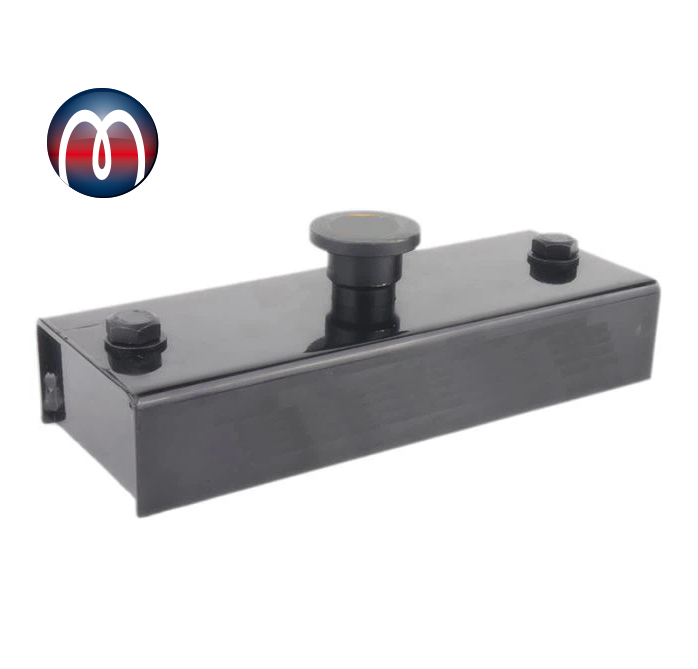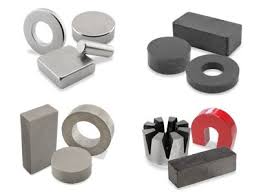Strong Neodymium Magnet, Rare Earth Magnets
Super Magnets encompass several families of rare-earth magnets. Super Strong Neodymium Magnet are primarily made with the alloy of neodymium, iron, and boron (NdFeB). Buy the strongest neodymium magnets here Disc, blocks, rings and spheres in various sizes, as sets & self-adhesive. The World's Strongest & Most Powerful Rare Earth Magnets. We carry a large inventory of permanent magnets; neodymium, ceramic, samarium cobalt, & alnico magnets available from stock for immediate shipment in a wide range of shapes, sizes & grades. |
 Buy Super Magnets, Powerful Neodymium Rare Earth Magnets
Buy Super Magnets, Powerful Neodymium Rare Earth Magnets
Strong, Rare Earth Neodymium Magnets, Neodymium magnets are well known for being the strongest rare earth magnets in the world. Neodymium magnets are used in an enormous range of applications, including electronics, healthcare, industrial applications, clamps, magnetic separation equipment, and more.
What are Neodymium Magnets?
Neodymium magnets are a member of the rare earth magnet family, and are the most permanent magnets in the world. They’re composed of Neodymium (Nd), Iron (Fe) and Boron (B), which makes them vulnerable to rust if they’re exposed to the elements. To protect the magnet from corrosion and to strengthen the brittle magnet material, the magnet is usually coated with nickel.
Product Features
Buy strong magnets online!
- Alnico Magnets (AlNiCo)
- Neodymium Magnets (Rare Earth)
- Samarium Cobalt Magnets (SmCo)
- Ceramic Magnets (Ferrite)
- Magnetic Assemblies, Magnetic Strips, Magnetic Tape, Magnetic Labels
- Office Magnets, Whiteboard Magnets
- Magnetic Tools
Application
Neodymium magnets are available for standard temperature and high-temperature applications. Standard temperature neodymium magnets will begin to lose strength if they are heated above their maximum operating temperature, which is 180°F (80°C). High-temperature neodymium magnets can safely be used at operating temperatures up to 300° Fahrenheit (149° Celsius).
- Electronics — Cell phones, loudspeakers, headphones, and more everyday electronics use neodymium magnets.
- Industrial applications — Alternators, flow meters, linear actuators, gyroscopes.
- Clamps — A couple neodymium blocks or cubes are perfect for holding pieces of metal in place. This is most common when used for welding, drilling, or machining purposes.
- Green Energy — Both hybrid and electric vehicles employ neodymium magnets, as do wind turbines.
- Healthcare — Pacemakers and magnetic resonance imaging (MRI) machines use neodymium magnets.
- Oil Filters — Ever wonder how metal chips are filtered out of oil? Neodymium magnets!
- Stud Finders — These magnets are powerful enough to find hidden nails and other metal pieces inside walls.
- Magnetic Therapy — For those who use magnetic therapy as a healing tool, neodymium magnets fit the bill perfectly. There are different sized blocks to choose from depending on the size of the body being worked on.
- Closers — Need to hold a brochure, box, binder, or other presentation piece shut? Neodymium magnets are perfect for the job.
- Toys — You’ve probably played with magnets at some point in your life. They were probably neodymium magnets! They’re used quite often as entertainment.
- Remagnetization — Neodymium magnets can be used to put the magnetization back in other types of magnets, such as Alnico horseshoes and other bar magnets.
- Metal Detectors — Did you know neodymium magnets are used in metal detectors?
Who supplies high quality Supermagnets, Magnets and Magnet Material?
Magnosphere produces magnets at great prices, produced and delivered on time for all areas of industry, automotive, aerospace, electronics as well as in the design sector, trade fair construction, offices and for the home.
We are an ISO certified shop and carry the Trusted Shops seal. We have successfully completed more than 400,000 orders and offer our ever-growing customer base 24/7 customer service.
All items are available for immediate delivery in large numbers with daily dispatch. Our selection is your win! Thousands of satisfied customers! Buy from a company with the highest quality standards and customer service with flexible and diverse payment options and conditions.
We can also custom manufacture these to fit your exact specifications using our in-house global manufacturing facilities and team of experienced engineers. Need high quantities of magnets at the lowest and fairest price possible? Just let us know what you are looking for and contact our Customer Care Team by sending us a request for quote! We'll work with you to determine the most economical way of providing you with what you need.
Trust in our experience and convince yourself of our service and our products and we look forward to welcoming you to our magnet shop at Magnosphere. You are welcome to contact us by eMail: info(at)magnosphere.co.uk. Available 24/7 x 365 and we are also there for you on public holidays! Or just give us a call.
ROHS-Directive
![]() Magnosphere conforms to the RoHs directive and the Reach and PFOS regulations. Directive 2002/96 / EC of the European Parliament and of the Council, of January 27, 2003, on waste electrical and electronic equipment (WEEE).
Magnosphere conforms to the RoHs directive and the Reach and PFOS regulations. Directive 2002/96 / EC of the European Parliament and of the Council, of January 27, 2003, on waste electrical and electronic equipment (WEEE).

- Hotline:+49 (0) 2241 959450
- Telefax: +49.2241.9594520
- eMail: info@magnosphere.co.uk
We are very proud to offer excellent customer service. We know that without our clients, we would not be here. If you have any questions about your order or something else, please call or email us!: info(at)magnosphere.co.uk
24 / 7 x 365 Including holiday periods! Our customer service team is available to help you!



